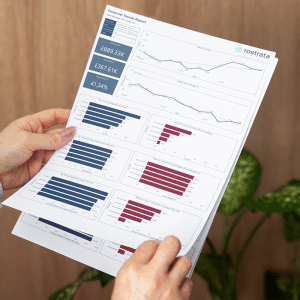For too long, personal health budgets and high-value care packages have operated in a trust-based vacuum. Commissioners allocate substantial sums – sometimes exceeding £20,000 a year per package – with limited visibility into how care is actually delivered. It’s no surprise to us that bodies such as HMRC have begun to investigate the way in which self-employed personal assistants are being used.
Meanwhile, the shocking reports we’re constantly seeing in the media where expected and planned-for care and support hasn’t been delivered – leading to safeguarding issues and missed outcomes for the most vulnerable – show that legislation and accountability isn’t a hindrance, it’s a force for good. It’s ushering in a new era of oversight, and outcomes-driven smarter commissioning.
The problem with tracking spending rather than service
There’s now recognition that relying on Purchase Cards and online transactional systems to monitor the delivery of care is no longer fit for purpose on complex, high value care packages. They may have a place in smaller Personal Health Budgets and Direct Payments, but wherever there is a risk in terms of safeguarding and care delivery, more detail is needed.
Look at it like this; in a domestic environment you might do a one-off charge of your electric vehicle where necessary using a credit card. But if you want to properly understand how much charging is costing you, what electricity you’re using and when you can make most efficient use of the technology, you sign up to a charging plan where you know the tariff, the best hours to charge and can interrogate the data at any time.
It’s the same in care. Purchase cards and online transactional systems for high value packages can only track spending, not service. They say nothing about whether the care plan was followed, whether the hours were delivered, who delivered them, the competency level of the care worker or whether the client’s health outcomes improved.
Even more troubling, we’ve seen recent examples where this lack of oversight has led to real consequences. We talked about HMRC at the start; we have heard about a council now under investigation by HMRC for the illegal use of self-employed PAs on large care packages. Presumably this was done to negate employment costs, but it should never have been allowed to happen in the first place. Similarly, the recent ITV report on a large care provider commissioned to deliver complex care, failing to do so but still being paid beggars belief.
And it also shows what a widespread issue this is. Across the UK, councils are failing CQC inspections and dealing with clawback judgments. The underlying issue? A lack of real-time insight into care delivery.

Data as the answer
The frustration is that there is already a solution to this lack of oversight, it’s just not used effectively. Most care providers operate roster and timesheet systems every day. These systems (although some are still paper-based) contain most of the granular data that commissioners need: who delivered care, when, for how long, and whether it aligned with the plan. The problem? These systems were never built for shared access. Commissioners are locked out.
Until now.
Enter Rostrata: A System for Everyone
Rostrata is the first intelligent care rostering platform designed from the ground up to serve *all* stakeholders: commissioners, providers, brokers, and families. It creates a single source of truth for care delivery, tying financial data, care planning, and actual delivery into one seamless, auditable system.
Here’s what that means in practice:
– No more information voids: You’ll know exactly what care is being delivered, in real time.
– Aligned delivery: Care matches the plan, and stays within budget.
– Quality assurance: Digital social care records, measurable outcomes, and automated case management updates.
– CQC readiness: Demonstrate joined-up care and oversight – even on pilot packages.
And perhaps most critically: it enables a proactive, not reactive, approach. Councils can avoid compliance issues before they become headlines.
Future-Proofing Commissioning
So yes, the era of unmonitored personal budgets really is ending. Oversight is no longer optional, it’s essential. And with Rostrata, it’s also easy.
If you’re a commissioner looking to get ahead of the curve, now is the time to act. Start with a Rostrata pilot, filter the high-value packages into our system, and let Rostrata produce the immediate reporting that will find you instant reports.
This is not just about saving money – although it does. It’s about improving outcomes, increasing transparency, and restoring public trust in how care is delivered. And most of all, it’s about ensuring that the care and support identified as being crucial for people actually takes place.

